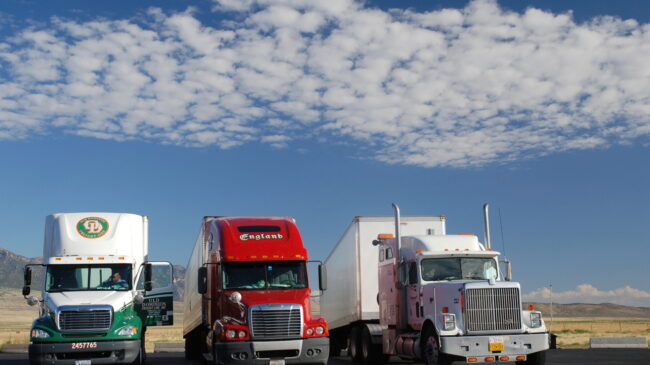If you’re one of the millions of Californians driving to a weekend getaway or a vacation this summer, you may notice the lack of services at Interstate rest areas. Way back in 1960, lawmakers banned all commercial services from being provided at “rest areas” on Interstates. Thus, all that’s allowed at these “rest areas” are restrooms and vending machines.
When the first Interstates were being built, owners of gas stations and restaurants in small towns feared they would be bypassed by Interstate travelers. So they lobbied for, and Congress passed, a law prohibiting service plazas on the new Interstates and encouraged small retailers to relocate their businesses to be near the off-ramps of the new Interstates.
If you grew up, or have driven, in the Northeast or Midwest, you may recall large service plazas on toll roads like the New York Thruway and Ohio Turnpike. Those superhighways pre-dated Interstates, so they were exempted from the federal ban on commercial rest areas. But on 95% of all Interstate highways, instead of a service oasis, there are service deserts called rest areas.
Times have changed since 1960. Today, due in part to concerns over climate change, state and federal policies are strongly promoting a shift from petroleum-fueled cars and trucks to electric vehicles, which need charging stations along highways. Environmental groups favoring electric vehicles also want to remove the ban on commercial rest areas.
The trucking industry has a different problem with the ban. Now that long-haul trucks have to maintain digital logbooks, drivers can no longer “fudge” their required hours of rest time. As a result, there is a severe shortage of safe, overnight truck parking spaces. The truck stop industry has not expanded its parking capacity enough so we often see big rigs parked illegally alongside exit ramps and other unsafe locations.
A recent Reason Foundation study says the needs of truckers and electric vehicles, plus the public’s desire for things like a Starbucks coffee or a nice meal without leaving Interstates, mean the 61-year-old federal ban on commercial services has reached its expiration date.
But the big opponent of change is the National Association of Truck Stop Operators (NATSO), which has defeated previous federal bills that would’ve legalized commercial rest areas on Interstates. Historically, the largest trucking association has also sided with NATSO. Together they refer to commercial service plazas as “government competing with private businesses” even though the same tax-paying companies running gas stations and fast-food companies near off-ramps also provide services at turnpike service plazas.
NATSO also suggests fuel and food would cost more at Interstate service plazas because those companies would have to pay rent—as if gas stations and restaurants don’t pay rent or mortgages now for their current locations near highway off-ramps.
State transportation departments have often called for ending the ban on commercial rest areas because it costs them money to create and maintain Interstate the existing rest areas and they know motorists and truckers would gladly welcome updated turnpike-like commercial service plazas.
The Reason Foundation study found that many existing rest areas are too small to provide service plazas with ample parking and an array of retailers but private financing is available to acquire more land, develop the new plazas, and recruit the companies to serve truckers and motorists. Many of the turnpike service plazas in the Eastern U.S. are now being modernized under 30-year public-private partnerships with companies like Areas USA and HMS Host.
In other words, state transportation departments and the private sector are ready, willing, and able to meet the needs of electric vehicles, drivers, truckers and to provide much better services on the Interstates. All that’s needed is for Congress to get rid of this ancient law.
A version of this column originally appeared in the Orange County Register.

